
Four fascinating works of string intersection from New York composer and violist Jessica Pavone, recording in the studio with the trio of violinists Aimre Niemann (Du.0 (do-point-oh)) and Abby Swidler (Xanthoria Quartet), Pavone's compositions creating wonderful psychoacoustic intertwining of texture and tone that slowly and beautifully blossom.
In Stock
Quantity in Basket: None
Log In to use our Wish List
Shipping Weight: 3.00 units
Sample The Album:
Jessica Pavone-composer, viola
Aimre Niemann-violin
Abby Swidler-violin, viola
Click an artist name above to see in-stock items for that artist.
Label: Astral Spirits
Catalog ID: AS236CD
Squidco Product Code: 34894
Format: CD
Condition: New
Released: 2024
Country: USA
Packaging: Cardboard Gatefold
Recorded at EastSide Sound in Manhattan, New York, on October 8th, 2023, by Marc Urselli.
"On the evening of July 13th, 2023, I trekked up to Arnold Hall for a very special performance at The Stone. I sat in the front row and took out my notebook then turned to my right and looked around the space. The dimly lit room buzzed with quiet activity and conversation. After a few more minutes, the lights went even lower and out walked three shadowy figures. Each clicked on a small bulb that lit their individual music stands.
This was my third time seeing the J. Pavone String Ensemble. The first two occasions took place in the Spring of 2022 during our cow: Music/Astral Spirits showcases in Montreal and Kingston, New York. Those first two performances left quite an impression on both audiences. They'd focused on material from the recently released second album on Astral Spirits, ... Of Late. This evening's performance was the first time the group had made an appearance together since that tour.
The trio is composed of Jessica Pavone (leader/ composer/ viola), Abby Swidler (violin/ viola), and Aimée Niemann (violin). After a brief acknowledgment, they struck their positions and began playing pieces from their previous album and 2020's outstanding Lost and Found (their first for Astral Spirits and last quartet record before switching to a quantized format). They worked through these pieces beautifully for about a half hour, pulling up memories of the last time I'd seen them. Like most musically responsive groups, there was a high level of eye contact, pausing, and visual communication while moving through the delicate and sensitive passages.
After the first half was finished, our leader spoke for a few minutes. She explained that the group was about to world premier pieces from the album you now hold in your hands.
"This is like hangin' out with strangers", Pavone said with a chuckle. As they moved through the material, I started to understand what she meant. The mood of the room changed a bit. It's like we were all listening harder, trying to catch every detail of this freshness. Yet, for me, at least, the pieces felt somewhat skeletal. The beauty of the intention was fully present, yet the execution felt unsure. After the performance, I mentioned this, and our leader felt the same. She decided to spend some time enhancing parts of the music, and after the passing of a few months, I received the text that the album was ready to preview.
The naming, combined with the timing, of Reverse Bloom is perfect for this moment in time. As the album title suggests, the updated material is starker yet so much more focused. It retains thematic aspects of Pavone's work from recent years. Lull, When No One Around You Is There but Nowhere to be Found, Images of One, and Clamor all bear the fingerprint of her special composition style. But the somber-ness of Reverse Bloom feels more like a personal call to action than a musical trajectory. It makes an argument for it being ok to just wanna fucking hide in a beautiful place until it is safe to come out.
The record opens with the title track. The slow-moving chords will not be unfamiliar to the educated listener of this trio. Notes circle each other, gradually picking up pace before switching to a gentler swaying theme. As the players progress, themes intensify, piercing the threshold of the listener. About halfway through, the sounds become tender and mournful. It feels as though this composition was designed to represent a certain fear or acceptance of a painful fate.
"Three Trees" continues with an eerie mist, pinching with suspense. The incredible linework of our players has them overlapping notes for a minute or so, then suddenly stopping, keeping the listener on the edge of their seat. At the 2:47 mark, the music hits a cascading high mark lasting for a few minutes before fading into a subtle breath and stop motion before revisiting the shriek and closing the shortest piece on the album.
It is a sudden surprise to have "Obstructed Current" as it does. The jolting strings dash back and forth as if to stirrup motions created for the closing of a ballet or a do-si-do. Quickly, the tune settles back into the pulsing territory of the previous compositions yet still manages to leap with more movement and physicality. Jabbing and pulling, the group finds common ground in 5 minutes and waves to and fro. This pattern is accelerating and lasts for the duration of the piece. "Embers Slumber" is the closing number of the journey. Pizzicato introduces a tearful pathway, making way for a beautiful transition to arco movements. What is most memorable is seeing this piece played live and how important breathwork is to this work. I first noticed it seeing Pavone play with bassist/ composer Tristan Kasten-Krause. The pivoting cycles of this work conjure up such deep emotions as the pulsing goes back and forth... until the music stops.
Any listener can, and should, interpret the meaning being Reverse Bloom for themselves. For me, it is not only a hark back to hearing the great violist Karen Phillips for the first time as a teenager, but also connects the dots for me in regards to music being composed for the living and breathing times, as opposed to the rigidity of recital of ancient Europeanism. The times, as bleak as they are, have set the stage for many of us to do more inward searching. And it is my belief that this album can help with that process, as the title suggests.""-Gabriel Jermaine Vanlandingham-Dunn, 2023
Also available as a vinyl LP.Artist Biographies
• Show Bio for Jessica Pavone "Jessica Pavone (composer, viola, violin, el.bass) has performed in countless improvisation, avant jazz, experimental, folk, soul, and chamber ensembles since moving to NYC in 2000. She currently plays with Normal Love, in a duo with guitarist Mary Halvorson, with Anthony Braxton's ensembles and as a solo violist. As a composer, The Wire magazine praised her "ability to transform a naked tonal gesture into something special," and The New York Times described her music as "distinct and beguiling...its core is steely, and its execution clear." Pavone's recent works for solo viola and voice stem from years of concentrated long tone practice and an interest in repetition, song form, and sympathetic vibration. She combines her long tone rituals with delay, understated melodies and sparse lyrical content while continuously experimenting with new forms. She is interested in the physicality of performing her somewhat larger-than-comfortable instrument and believes that cultivating physical bodies as a strong container for her thoughts is part of the creative process. As an instrumentalist, she has personally worked with and interpreted new music by; Aaron Seigel, Andrew Raffo Dewar, Elliott Sharp, Glenn Branca, Henry Threadgill, Leo Smith, Jason Ajemian, Jason Cady, Jeremiah Cymerman, John King, Matana Roberts, Matthew Welch, Tristan Perich, Tyondai Braxton and William Parker; and, has played strings in bands such as Christy and Emily, Pure Horsehair, White Blue Yellow and Clouds, Joy Mega, and The Artificials. Pavone has toured extensively throughout the U.S., Canada and Europe, performing in venues ranging from international music festivals, universities, and art galleries, to community centers and basements. Her music has premiered in venues in New York City such as, Roulette, Issue Project Room, and The Kitchen, and at the Klangbad Festival in Sheer, Germany. In 2011 she was featured in NPR's "The Mix: 100 Composers Under 40." She has received grants and commissions from the Aaron Copland Recording Fund, the American Music Center, New Music USA for her collaboration with choreographer, Anna Sperber, The Kitchen, MATA, The Jerome Foundation, The Tri-Centric Foundation, Experiments in Opera, and the chamber music collective, Till By Turning." ^ Hide Bio for Jessica Pavone • Show Bio for Aimre Niemann "Aimée Niemann is a violinist and improviser who investigates sound through its intersection with movement. Steeped in the world of experimental music, dance, and theatre they compose graphic scores that are used as structures for interdisciplinary invention and the unearthing of new sounds. Niemann is the founding member of Du.0 (do-point-oh), a New York City-based violin duo that specialises in contemporary and noise-based music. Formed in 2015 the ensemble "[shines] in moments of deep listening" (I Care if You Listen). The duo premiered three new works by composers Leah Asher, Emily Praetorius, and Scott Wollschleger in 2020 and have their debut album forthcoming. Alongside violinist Marija Kovačević, Niemann released a four part record with their duo BUKA, spanning the seasons pre and post pandemic (G.P Stripes Recordings). Aimée plays often with the Jessica Pavone String Ensemble and appears on Pavone's two most recent albums, Lull (Chaikin Records) and Of Late (Astral Spirits). Aimée is honored to have played on the premiere performance and recording of Anne Leilehua Lanzilotti's work with eyes the color of time, which was named as a finalist for the 2022 Pulitzer Prize in Music (String Orchestra of Brooklyn, New Focus Recordings). Other notable collaborations include with composers Aleksandra Vrebalov, Alvin Lucier, Anthony Coleman, Christian Wolff, Lucie Vítková, Matt Smiley, and Paul Elwood. From an early age Aimée's role as an artist moved fluidly between music, movement, and other mediums. Since moving to New York City in 2013, they have worked extensively with dancers, visual artists, and in theatres to challenge the traditional role of the "violinist". Niemann has created large-scale multimedia installations with Cecila Biagini (AC Institute) and Marija Kovačević (Racer Sessions). They have co-produced works with choreographers Nadia Khayrallah, Whitney Janis, Abby Marchesseault, and Ichi Go. Their live scores have been featured in experimental theatre works by Polina Ionina (The How Theatre) and Dimitri Barcomi (Section 175). Notable performances of their work have taken place at the 14th Street Y, Little Island Festival of Music and Dance, Queens College Arts Festival, Exponential Festival, and the Edinburgh Fringe Festival, as well as in countless DIY venues and self made spaces across the country. Niemann has toured internationally and performed at Carnegie Hall, Lincoln Center, National Sawdust, (Le) Poisson Rouge, and Roulette Intermedium. They have been an artist in residence at the West Street School House (2019, 2022), The Next Festival of Emerging Artists (2018), and have received grants from the Foundation for Contemporary Arts (2022) and The New York Foundation for the Arts (City Arts Corps, 2021). A passionate educator, Niemann teaches violin and chamber music at Third Street Music School Settlement in Manhattan and founded the school's Creative Sound Lab course. Niemann has been on the faculty at New York University, The String Quartet Program of Northern Colorado, and as a visiting artist at Mahidol University in Bangkok,Thailand. Aimée teaches graphic score and improvisation workshops to youth in New York City and has trained more than 50 teachers to use a method called Creative Ability Development (CAD), which incorporates improvisation practices into traditional and Suzuki focused music classrooms. Niemann studied at the University of Northern Colorado (B.M.) and New York University (M.M.). Their mentors include Anne Leilehua Lanziotti (Pulitzer finalist, 2022), Kikuei Ikeda (Tokyo String Quartet) and Alice Kanack (founder of CAD). Originally from the prairies of Colorado, they currently live in Queens, New York." ^ Hide Bio for Aimre Niemann • Show Bio for Abby Swidler "Abby Swidler is a composer, violinist, violist, and vocalist whose work appears in many contexts including new music, improvisational music, and song. Abby is a passionate collaborator, frequently performing with ruby, a song collaboration with Kim Mayo; Xanthoria Quartet a string quartet which performs new and old works ; Italian film-score band, Tredici Bacci; The Jessica Pavone String Ensemble; and the NYC chamber orchestra, Shattered Glass; among other projects across genre lines. As a composer and performer, Abby has collaborated with dance, film, theater, and performing ensembles; working with artists like Lady Lamb, Carla Kihlstedt, Mirah, Kishi Bashi, Jherek Bischoff, Angel Olsen, Anthony Coleman, Bent Knee, The California Guitar Trio, Shizuka Viola Duo, Dance Visions INC., and Giselle Ty. She has played on over 30 studio albums. Abby received a B.M. in Violin Performance from Eastman School of Music and an M.M. in Contemporary Improvisation from The New England Conservatory. Originally from Missoula, MT, they currently live in Brooklyn, NY." ^ Hide Bio for Abby Swidler
3/26/2025
Have a better biography or biography source? Please Contact Us so that we can update this biography.
3/26/2025
Have a better biography or biography source? Please Contact Us so that we can update this biography.
3/26/2025
Have a better biography or biography source? Please Contact Us so that we can update this biography.
Track Listing:
1. Reverse Bloom 10:18
2. Three Trees 07:45
3. Obstructed Current 10:57
4. Embers Slumber 10:00
Compositional Forms
Stringed Instruments
Trio Recordings
NY Downtown & Metropolitan Jazz/Improv
New in Compositional Music
Recent Releases and Best Sellers
Search for other titles on the label:
Astral Spirits.


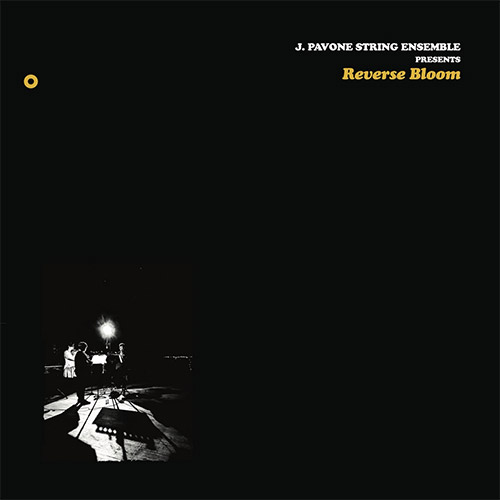

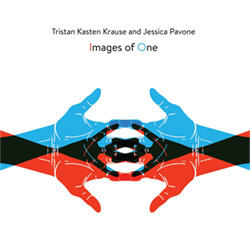
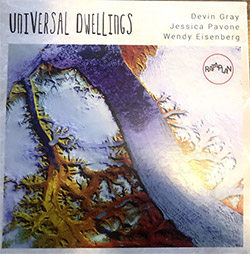
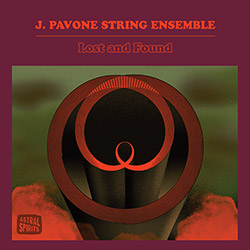

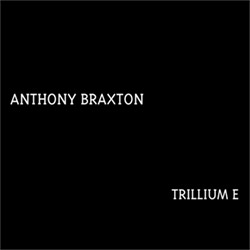


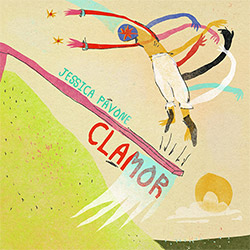

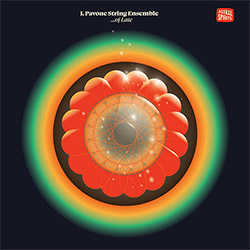
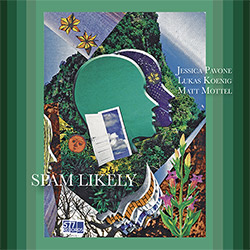
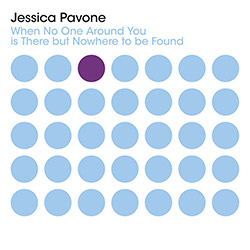



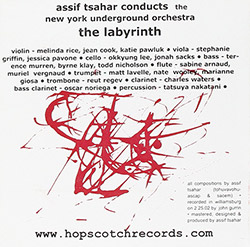
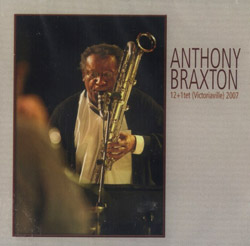
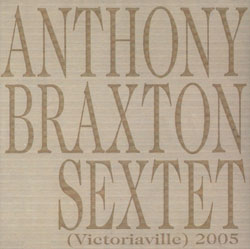

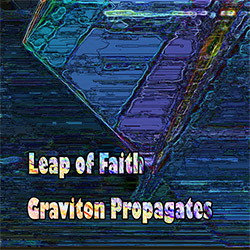
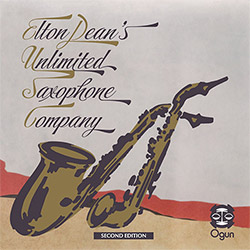








![Ackerley / Prymek / Turner: All Hope With Sleeping Minds [CASSETTE]](https://www.teuthida.com/productImages/misc4/35950.jpg)
![Myers, David Lee : Tin Drop Tear [BOOK w/ DOWNLOAD]](https://www.teuthida.com/productImages/misc4/36030.jpg)



![Schindler, Udo / Sandy Ewen / Damon Smith: Munich Sound Studies Vols. 4, 5 & 6 [3 CDs]](https://www.teuthida.com/productImages/misc4/35966.jpg)






![Turbulence Orchestra & Sub-Units: Smear Out the Difficulties (Double Live) [2 CDs]](https://www.teuthida.com/productImages/misc4/36048.jpg)
![Perelman, Ivo / Tyshawn Sorey: Paralell Aesthetics [2 CDs]](https://www.teuthida.com/productImages/misc4/35871.jpg)


![Sjostrom, Harri: SoundScapes #4 Festival Berlin 2023 [3 CDs]](https://www.teuthida.com/productImages/misc4/35874.jpg)

![Musicworks Magazine: #150 Winter 2024/25 [MAGAZINE + CD]](https://www.teuthida.com/productImages/misc4/36035.jpg)





![Glenn, Jordan: Flustered [CASSETTE]](https://www.teuthida.com/productImages/misc4/35948.jpg)


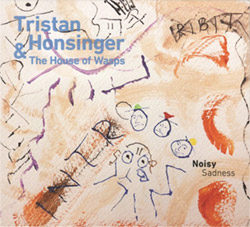
![Lindorff-Ellery, Evan: Church Recordings from Monhegan [CASSETTE]](https://www.teuthida.com/productImages/misc4/35949.jpg)
![Schindler, Udo / Werner Dafeldecker / Gunnar Geisse: Travelling Sound Images - Cognitive Transfers [Trio]](https://www.teuthida.com/productImages/misc4/35767.jpg)

![Egberth, Dennis: The Dennis Egberth Dynasty [VINYL]](https://www.teuthida.com/productImages/misc4/35549.jpg)


![Schindler, Udo / Rieko Okuda / Eric Zwang Eriksson: Disturbed Terrains [2 CDs]](https://www.teuthida.com/productImages/misc4/35330.jpg)
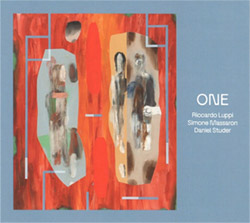
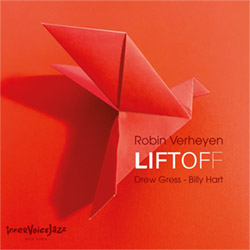
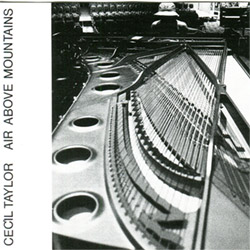


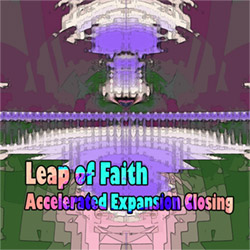
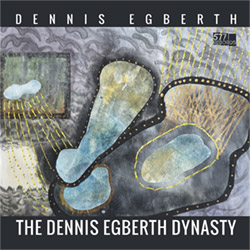
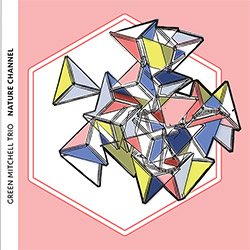

![Wolf Eyes / Anthony Braxton: Live At Pioneer Works, 26 October 2023 [VINYL]](https://www.teuthida.com/productImages/misc4/35839.jpg)




![Olencki, Weston : Pearls Ground Down To Powder [VINYL]](https://www.teuthida.com/productImages/misc4/35956.jpg)
![Myers, David Lee: Oculus [2CDs]](https://www.teuthida.com/productImages/misc4/35857.jpg)


![dustsceawung: dustsceawung [CASSETTE w/ Download]](https://www.teuthida.com/productImages/misc4/35753.jpg)




![Halls of the Machine: Atmospheres For Lovers And Sleepers [CASSETTE w/ DOWNLOAD]](https://www.teuthida.com/productImages/misc4/35806.jpg)



![AHC (Alexander Cooper): Lase [2 CDs]](https://www.teuthida.com/productImages/misc4/35754.jpg)



![Fagaschinski, Kai / Yan Jun : Graveyard Processions [VINYL w/ DOWNLOAD]](https://www.teuthida.com/productImages/misc4/35474.jpg)
![Brant, Cody / Carl Kruger: Smoke Detail [CASSETTE w/ DOWNLOAD]](https://www.teuthida.com/productImages/misc4/35551.jpg)







![Zorn, John / JACK Quartet: The Complete String Quartets [2 CDs]](https://www.teuthida.com/productImages/misc4/35609.jpg)

![Lonsdale, Eden: Dawnings [2 CDs]](https://www.teuthida.com/productImages/misc4/35480.jpg)







![Sanna, Claudio: Compositori Sardi Contemporanei II [2 CDs]](https://www.teuthida.com/productImages/misc4/35317.jpg)







![Zurria, Manuel: Fame di Vento [3 CDs]](https://www.teuthida.com/productImages/misc4/35167.jpg)

![Granberg, Magnus / Nattens Inbrott / Skogen: Holde Traume, Kehret Wieder! [2 CDs]](https://www.teuthida.com/productImages/misc4/35038.jpg)

![Electric Bird Noise / Derek Roddy: 8-10-22 [CD EP]](https://www.teuthida.com/productImages/misc4/35970.jpg)








![Elephant9 : Mythical River [VINYL]](https://www.teuthida.com/productImages/misc4/34624.jpg)



![Elephant9 with Terje Rypdal: Catching Fire [VINYL 2 LPs]](https://www.teuthida.com/productImages/misc4/35355.jpg)
![Deerlady (Obomsawin, Mali / Magdalena Abrego): Greatest Hits [VINYL]](https://www.teuthida.com/productImages/misc4/34876.jpg)







![Surplus 1980: Illusion of Consistency [CD]](https://www.teuthida.com/productImages/misc4/35069.jpg)
![Staiano, Moe: Away Towards the Light [VINYL + DOWNLOAD]](https://www.teuthida.com/productImages/misc4/35037.jpg)



![Caveira (Gomes / Sousa / Abras / Ferrandini): Ficar Vivo [VINYL]](https://www.teuthida.com/productImages/misc4/34643.jpg)
![Coley, Byron: Dating Tips for Touring Bands [VINYL]](https://www.teuthida.com/productImages/misc4/17906.jpg)

![Lost Kisses: My Life is Sad & Funny [DVD]](https://www.teuthida.com/productImages/misc4/lostKissesDVD.jpg)